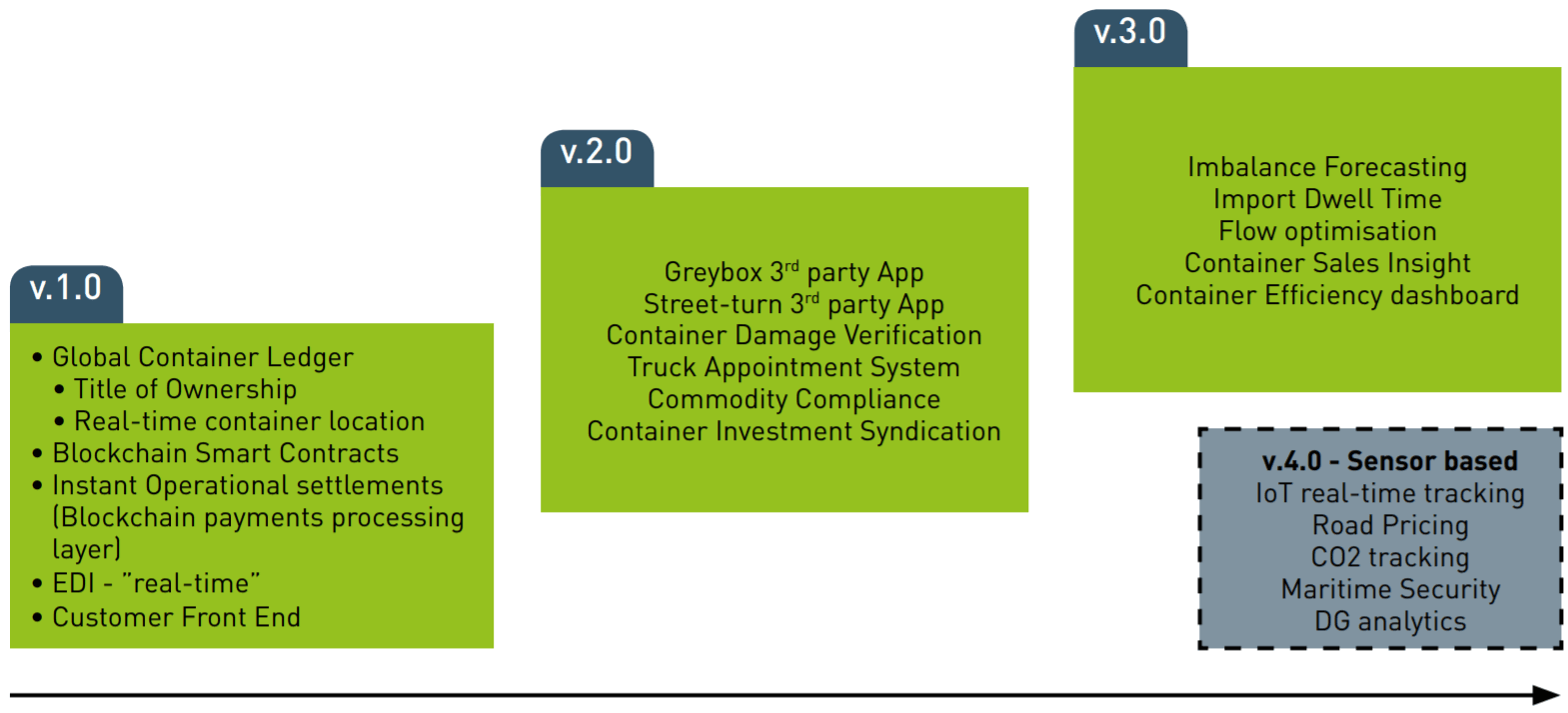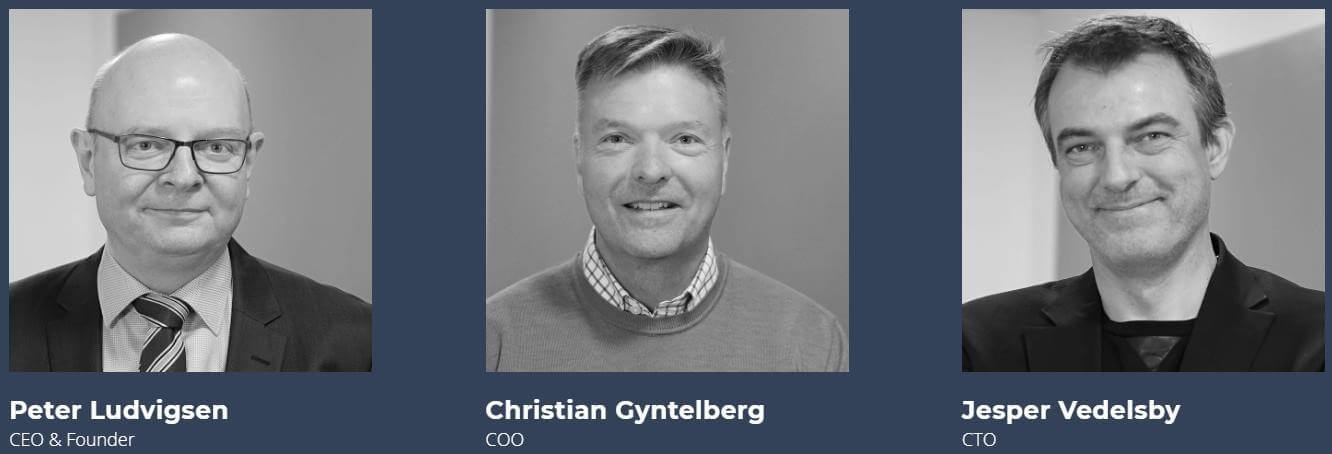About Blockshipping
Blockshipping is creating the GSCP platform, which will be
both the first real-time registry of the world’s approximately 27
million shipping containers and a joint platform for all players in the
container shipping industry.
The GSCP platform will be based on blockchain and modern sensor
technology, and it has the potential to reduce costs for the global
shipping industry to the tune of USD 5.7bn annually and reduce the
global CO2 emission by more than 4.6 million tons every year.
The GSCP ICO offers contributors a unique set of token features
including the benefits of a Revenue Sharing Model as well as a Market
Maker Fund that allows ICO contributors to sell their coins back to the
platform at a floor price.
The first ICO to be based on a new Danish framework called The ICO 2.0 Framework.
Overview
Blockshipping is looking to create the first real-time registry of
shipping containers that connects global stakeholders in the shipping
industry. The goal of Blockshipping’s blockchain-based solution is to
capture the full global inventory of registered containers and track
every single shipping container in real-time. This would potentially
result in tremendous cost savings for the industry as well as a
significant reduction in carbon dioxide (CO2) emission.
Blockshipping will solve the following issues plaguing the shipping industry:
Lack of Co-ordination: The
absence of a real-time registry of shipping containers has resulted in a
huge number of containers being moved around unnecessarily, resulting
additional operational costs and a wastage of business resources.
Over Supply of Carriers: The global shipping industry faces continuous pressures to reduce their costs, owing to an oversupply of vessel capacity.
Huge Carbon Footprint: The
shipping industry produces approximately 3% of the world’s greenhouse
gas emissions. There are increasing efforts by the European Union (EU)
to cap CO2 emissions, which could increase capital costs across the
shipping industry.
Under-Utilised Shipping Containers: A
huge inefficiency of the shipping industry is the transportation of
empty or half-full containers since there is little transparency in the
tracking process, or at all. This leads to a reduction in the potential
revenue generating process.
Applications
The core of Blockshiping’s solution is the Global Shared Container Platform (GSCP), which plans to provide an asset registry for shipping containers that is powered by blockchain technology. The GSCP platform enables carriers, beneficial cargo owners (BCOs) and terminal operators to achieve cost savings based on real-time information exchange enabled by blockchain technology.
GSCP will be built on Microsoft’s ‘The Coco Framework’, which is an open-source system that enables high-scale, confidential blockchain networks. The GSCP platform will have 3 main features:
Global Container Registry: Establishment of the global container registry – thereby optimising greybox- and street-turn-strategies across the industry
Ownership Records: Recording of change of ownership of containers and custodianship and thereby reducing losses for companies financing containersExchanges: Internal exchanges of services between users and payments transactions (clearing and settlement) based on an internal GSCP token
Here is the implementation plan of their proposed technology for the GSCP platform (and sensor-tracking):
Unique Differentiator
- Blockchain Solution for Shipping Containers:
There is no direct competitors for the niche market that Blockshipping
is focusing on. There are a few other players that have some functional
overlaps with Blockshipping, but are not offering a complete solution as
compared to Blockshipping. Here’s the comparison below:
(Read also:
Crypto Beginners Guide: 5 Things Crypto Newbies Should Know)
Team
The core team leading Blockshipping looks strong, amassing more than
75 years of container shipping experience. CEO and Founder – Peter
Ludvigsen – is born and bred in the shipping industry, entering many
verticals with established positions in some of the largest shipping
companies. He was the former Chief Investment Officer (CIO) for Maersk,
UASC and Ports America. The COO – Christian Gyntelberg – has senior
management credentials from Maersk and DHL, with extensive hands-on
experience in leading both commercial and operational departments.
Blockshipping’s CTO – Jesper Vedelsby – has more than 20 years’
experience as a CTO and technical architect within the shipping, airline
and energy sectors.
Advisors
Blockshipping is advised by veterans in both the shipping industry
and the blockchain space. Jesper is the Chariman of Unifeeder Board and
had an illustrious career in Maersk, serving as the senior Vice
President in Maersk Singapore and also the Group Vice President of A.P.
Moller Maersk. In the technological front, Bo Hembaek is a software
engineer that has founded multiple software development businesses and
also served as a member of IBM European Software Advisory Board. Bridget
Cosgrave is the Founder and President of Every European Digital. She is
an entrepreneur and angel investor for companies with Internet of
Things (IOT), E-Commerce and Telecommunications platforms and services.
Since 2016, she is focused on the Internet of Ships.
Traction
Blockshipping has raised funds totaling a modest $350,000 from private investors
and their personal network. Additionally, they receive start-up funding
from, and is supported by the Danish Maritime Foundation.
Milestones
1
Q1 2018
Platform Design/Prototyping.
Blockchain Platform Selection.
Smart Contracts Design.
2
Q2 2018
Platform Design/iPaaS Integration.
Smart Contracts Development.
Platform Implementation.
Data Population.
3
Q3 2018
Smart Contracts development.
Mapping of Customer EDI.
Data migration.
Soft Launch.
4
Q4 2018
Data Migration.
Training/Preparation.





No comments:
Post a Comment